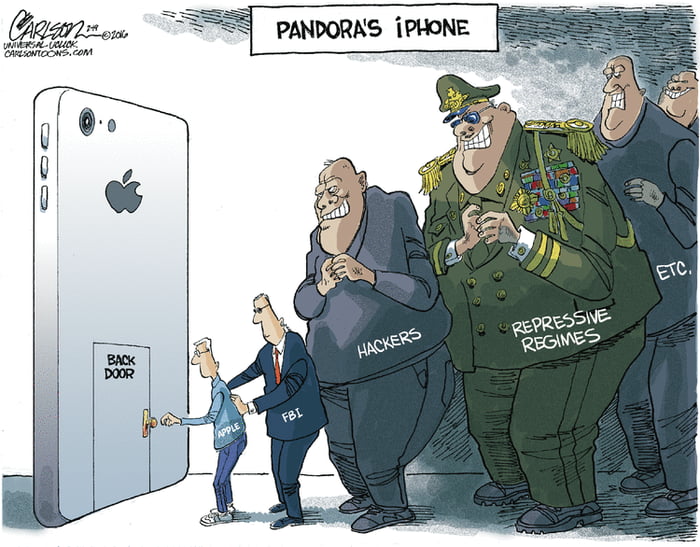I did read from Page 3 onwards and still don't get it. Android is an open source and still is popular? Does that mean Android users currently suffer a risk

And the misuse by FBI and Hoover is just scaremongering. People are more afraid of FBI than the terrorists, lolzy! Court order is the way to go. It happens for physical property and see no reason why e-property should be treated any differently.
Even taking in consideration radical outcomes, it'll be big companies and maybe foreign diplomats who would be more susceptible to spying and such. Impact to common man should be negligible.



